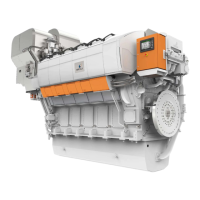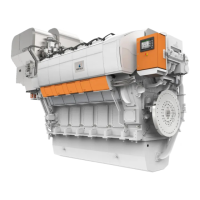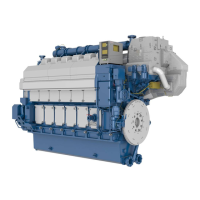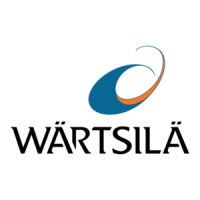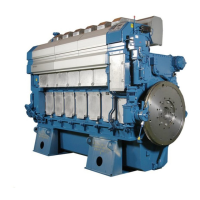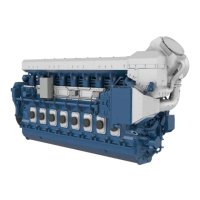5. Piping Design, Treatment and Installation
This chapter provides general guidelines for the design, construction and planning of piping
systems, however, not excluding other solutions of at least equal standard. Installation related
instructions are included in the project specific instructions delivered for each installation.
Fuel, lubricating oil, fresh water and compressed air piping is usually made in seamless carbon
steel (DIN 2448) and seamless precision tubes in carbon or stainless steel (DIN 2391), exhaust
gas piping in welded pipes of corten or carbon steel (DIN 2458). Sea-water piping should be
in Cunifer or hot dip galvanized steel.
Gas piping between Gas Valve Unit and the engine is to be made of stainless steel.
NOTE
The pipes in the freshwater side of the cooling water system must not be galvanized!
Attention must be paid to fire risk aspects. Fuel supply and return lines shall be designed so
that they can be fitted without tension. Flexible hoses must have an approval from the
classification society. If flexible hoses are used in the compressed air system, a purge valve
shall be fitted in front of the hose(s).
It is recommended to make a fitting order plan prior to construction.
The following aspects shall be taken into consideration:
● Pockets shall be avoided. When not possible, drain plugs and air vents shall be installed
● Leak fuel drain pipes shall have continuous slope
● Vent pipes shall be continuously rising
● Flanged connections shall be used, cutting ring joints for precision tubes
● Flanged connections shall be used in fuel oil, lubricating oil, compressed air and fresh
water piping
● Welded connections (TIG) must be used in gas fuel piping as far as practicable, but flanged
connections can be used where deemed necessary
Maintenance access and dismounting space of valves, coolers and other devices shall be
taken into consideration. Flange connections and other joints shall be located so that
dismounting of the equipment can be made with reasonable effort.
5.1 Pipe dimensions
When selecting the pipe dimensions, take into account:
● The pipe material and its resistance to corrosion/erosion.
● Allowed pressure loss in the circuit vs delivery head of the pump.
● Required net positive suction head (NPSH) for pumps (suction lines).
● In small pipe sizes the max acceptable velocity is usually somewhat lower than in large
pipes of equal length.
● The flow velocity should not be below 1 m/s in sea water piping due to increased risk of
fouling and pitting.
● In open circuits the velocity in the suction pipe is typically about 2/3 of the velocity in the
delivery pipe.
DBAE248994 5-1
5. Piping Design, Treatment and InstallationWärtsilä 31DF Product Guide
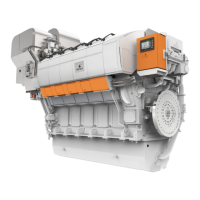
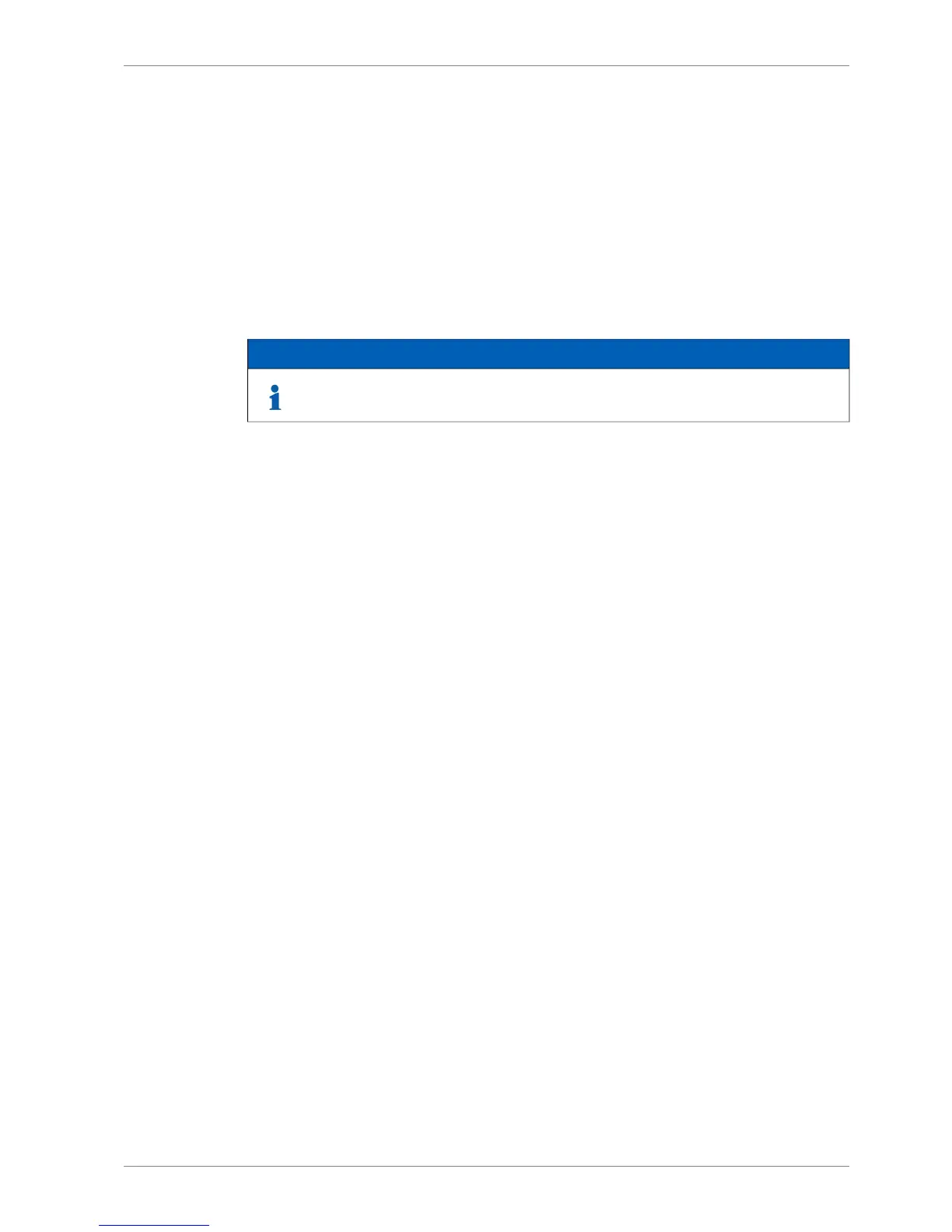